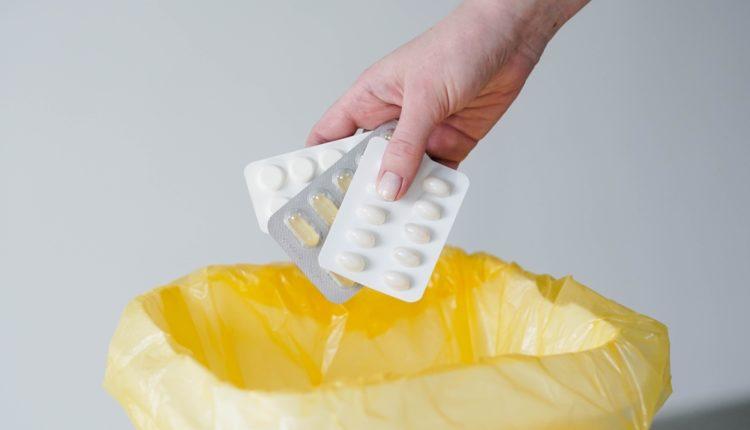
Improperly disposing of medicines can adversely affect our environment and at the same time, increase the risk of drug misuse or accidental poisoning. A recent study conducted by Alpro Pharmacy, International Medical University (IMU) and Monash University reveals that 83.2 percent of the respondents were aware of the negative impacts of improper handling of unused medicine towards the environment while 66.4 percent of the respondents responded that they have never received any form of education on the proper ways to dispose of medication.
With a focus on educating the public on safe disposal of medication and protecting Mother Nature, Branding, Promotion and Trade Marketing Director and E-Commerce Lead, Lee Yin Chen, from Alpro Pharmacy shared some noteworthy points that we should take note of.
1Twenty80: Why is proper disposal of unused prescription drugs so important?
Lee Yin Chen: It is believed that every year, tens of millions of Ringgit worth of medicines dispensed by health facilities remain unused by patients who either dump them into the rubbish bin or return them to the hospital or clinic concerned. Each medicine has chemical substances that can have adverse effects on people and the environment without safe disposal.
1Twenty80: Could you share some of the adverse effects of treating medical waste as regular garbage?
Yin Chen: It is important to first understand that it isn’t in anyone’s interest to endanger the environment. Pollution caused by improper disposal of medicines is due to the lack of awareness.
To date, several studies in Malaysia have reported that around 75 percent of the people get rid of unused medicine through household garbage, sink or drainage systems. As such the most prominent issue will be the pollution to our environment, especially marine life as many tend to flush out unused medicines. Most medicines are also soluble when in contact with water and this results in pollution to our sewage system and eventually the ocean.
Some of the negative impacts of improper medication disposal leads to the introduction of antibiotic resistance bacteria. This gives rise to superbugs (multi-drug resistance bacteria). Other medications such as hormones containing pills and antidepressants have caused significant effects on marine life. These impacts include:
- Changes in behaviour.
- Gender characteristics.
- Gender of the progeny (the descendants of these marine life).
- Improper disposal of medication can also pollute the source of our drinking water as waste water management is not able to filter the chemicals from medications.
1Twenty80: Are there any programs launched by the government in regards to safe disposal of medicine?
Yin Chen: In 2010, the Pharmaceutical Services Division, MOH implemented the ‘Return Your Medicines’ Program with the aim for patients to return their unused or excess medicines kept at home for safe disposal.
Under the program, unused medicines that were collected were then disposed of as pharmaceutical waste through regulated incineration. However, as seen from our survey, public awareness on this issue is relatively low. Hence, creating awareness is crucial on the importance of proper disposal of medicines. Several Malaysian studies have reported that only less than a quarter of the population returned unused medicines to the facilities.
1Twenty80: How can we reduce unused medications and supplements?
Yin Chen: Usually, medicines dispensed by pharmacists (whether in a government or a private institution) will be provided as accurately as possible based on the period and the frequency of the intake. Pharmacists rarely dispense more than prescribed and even if there is any, it would be just a few miscounted pills or tablets. However, the case of unused medicines still happens due to a few factors such as:

- Patients who stop consuming their prescribed medications after they feel better.
- Patients who did not take them as per the frequency and duration suggested by their healthcare professionals.
- Those who get their medicines from sources such as clinics, hospitals and pharmacies which results in them having the same type of medicine in excess.
Oftentimes when patients have excess medication, it is a clear indication that they have not been following their regime. One way to reduce unused medications is by encouraging the rational use of medication among healthcare professionals and the public. In many instances, patients tend to request more medication, especially from public hospitals where the medication is heavily subsidised.
1Twenty80: Where do these wastes go?
Yin Chen: Alpro has engaged certified experts to dispose of the medications through regulated incineration. The cost is fully funded by Alpro pharmacy.
1Twenty80: How to manage medical wastes too?
Yin Chen: We do not collect medical waste but medications. However, disposal of medical waste can be more complicated as each piece of equipment requires different disposal methods. Some medical wastes pose serious biological threats, such as sharp objects (needles, syringe) or radioactive products, which can only be handled fittingly by a trained healthcare professional.
1Twenty80: Where can people go to dispose of their unused or expired medicine?
Yin Chen: First and foremost, medications are not recyclable and therefore disposing] them through proper incineration is the only available option. To enable the immediate disposal of medication, Alpro Pharmacy for example, has prepared medicine disposal bins in over 165 outlets nationwide. Alternatively, government hospitals and some selected public institutions have also enabled the public to bring back their unwanted or expired medicines so that they can be either stored for usage or disposed of properly.

1Twenty80: What are the risks of keeping unused or expired medicines?
Yin Chen: According to the official website of the Ministry of Health Malaysia (MOH), some of the risks of keeping unnecessary medicines include:
- Errors in taking medicines like accidentally consuming expired medicines.
- Consuming the wrong dose or wrong type of medicine due to unclear or damaged labels.
- Risk of children getting overdosed that can harm them or cause toxicity.
- Expired medicines can cause adverse effects if they are contaminated by bacteria or fungus.


One way to reduce unused medications is by encouraging the rational use of medication among healthcare professionals and the public.
1Twenty80: How can the pharmacist play a role to ensure that medicines are discarded properly?
Yin Chen: Educating patients and consumers on the adverse effects of treating medicine as household garbage and informing customers on outlets available to dispose of medicines the right way is important.
1Twenty80: Since Alpro Pharmacy initiated the ‘Safe Medication Disposal Campaign’, what are the positive improvements?
Yin Chen: We have received additional queries and interest in our social media after we launched the campaign to understand the process of disposing unused medications. Some even visited Alpro outlets with medications that have been on their shelves for years, as they were not sure how to deal with them.
We see this as a positive sign that people do care about the environment and will support causes that can help save the environment when properly educated on the topic. We appreciate the community’s support and hope to introduce more campaigns soon.


1Twenty80: What is the difference between medical wastes and medication?
Yin Chen: Medication and medical wastes are not to be confused.
- Medications refer to the medicines themselves.
- Medical waste includes medical equipment such as Personal Protection Equipment, disposable devices, and even biological waste from the treatment or examination process.
However, disposal of medical waste can be more complicated as each piece of equipment requires different disposal methods.











